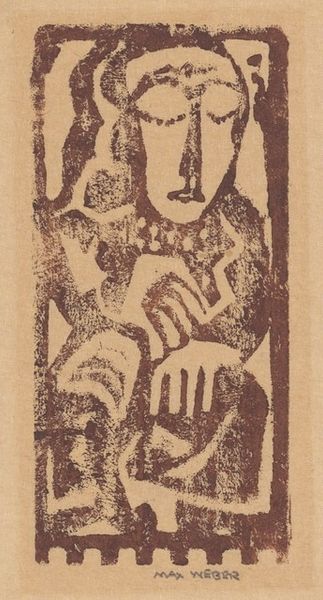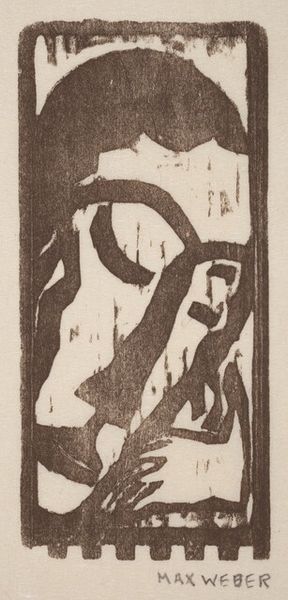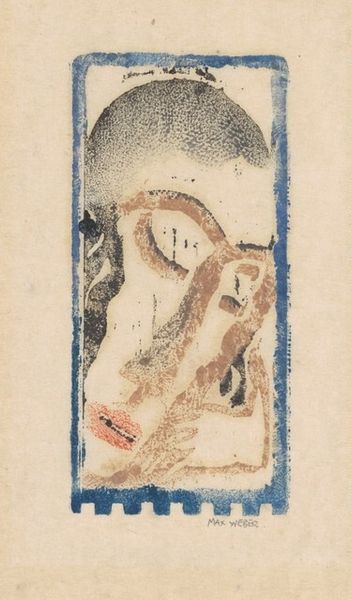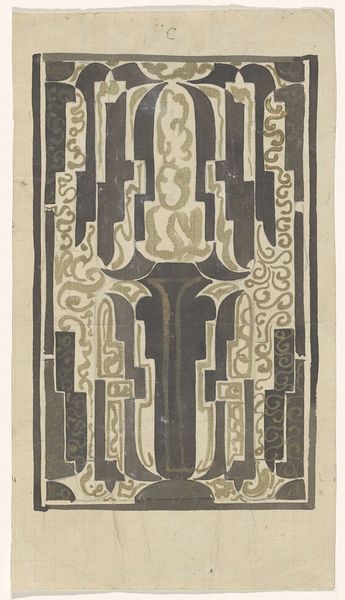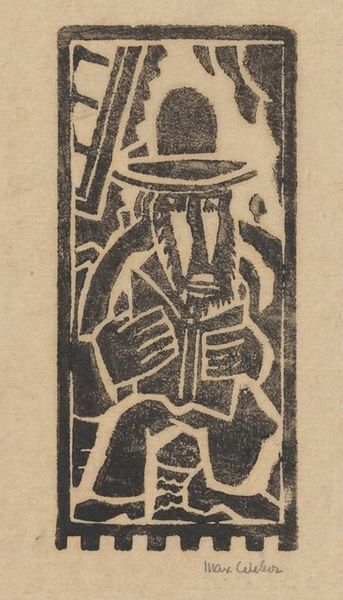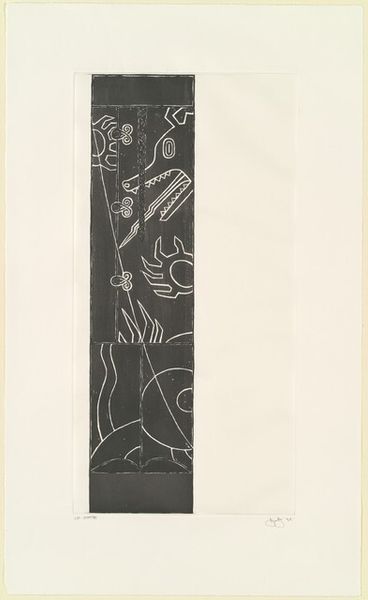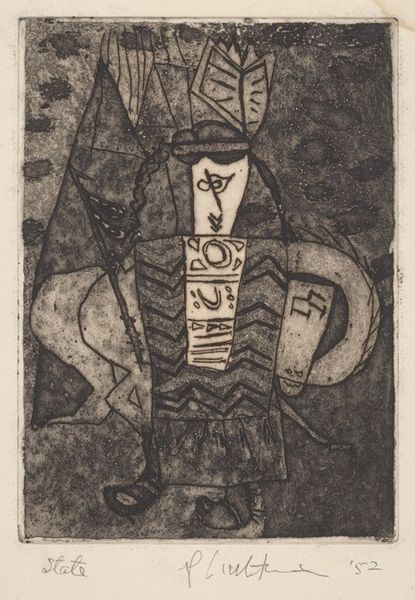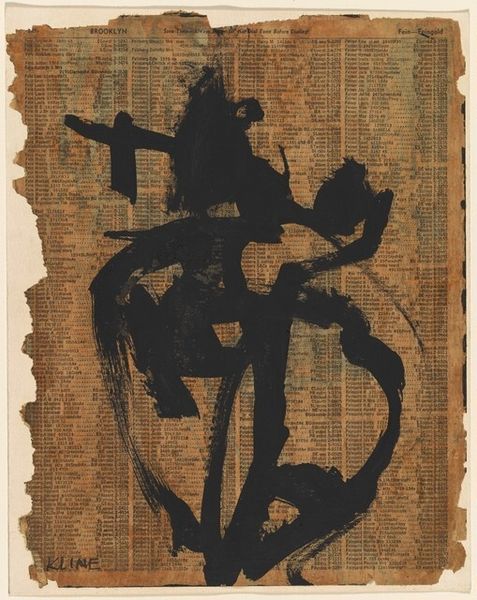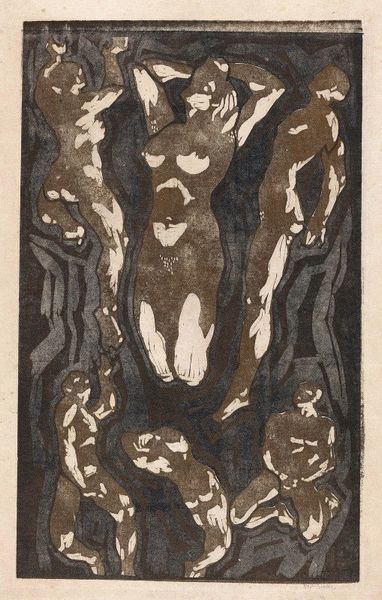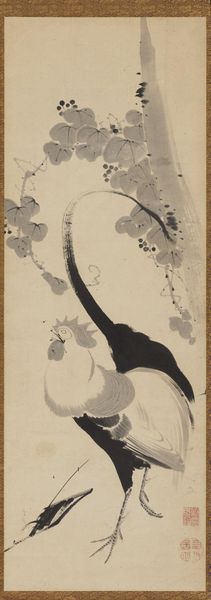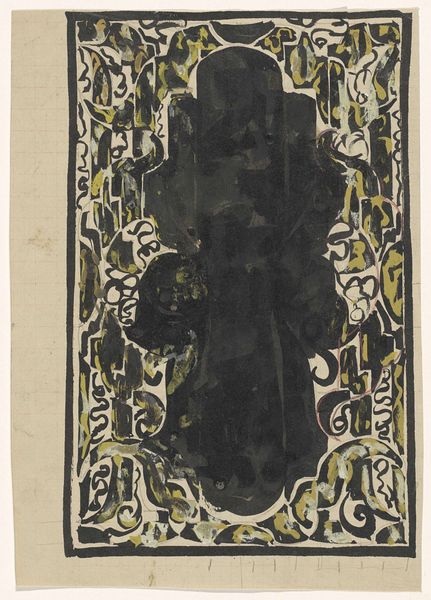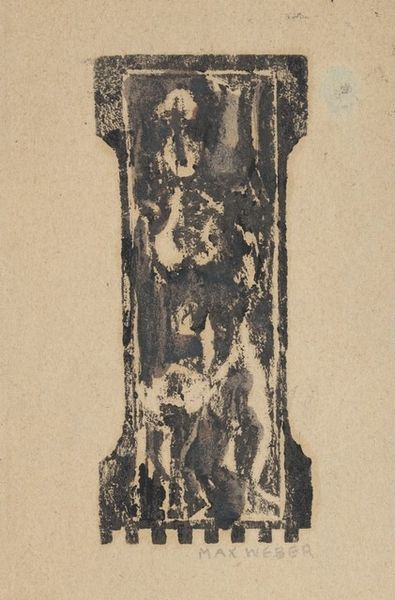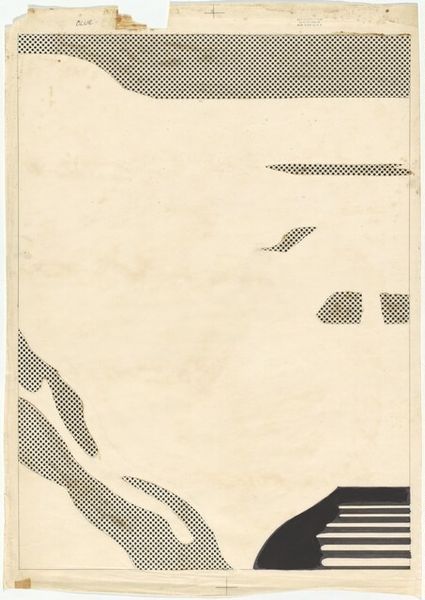
graphic-art, print, ink, woodblock-print
#
graphic-art
#
water colours
#
ink painting
# print
#
asian-art
#
form
#
ink
#
woodblock-print
#
abstraction
#
line
#
monochrome
Copyright: National Gallery of Art: CC0 1.0
Editor: Here we have Tadashi Nakayama's 1959 woodblock print, "Guidepost to the East." The monochrome palette and abstract shapes create a sense of ancient mystery, like a glyph from a lost language. How do you interpret the symbolic weight of these forms? Curator: The power of Nakayama's print lies in its capacity to evoke a deep sense of cultural memory. Notice how the black, seemingly abstract figure dominates the composition. It recalls calligraphy, doesn't it? Like characters stripped down to their essential form, loaded with cultural significance, ready to suggest movement, time, and place. What feelings does this character-like form give you? Editor: It feels very primal, almost totemic, but also very refined and carefully balanced within the brown field. The red circle in the top-left feels both like a sun and a seal or signature. Curator: Precisely! Consider the enduring significance of the sun in Eastern iconography—representing enlightenment, power, and the cycle of life. Nakayama masterfully uses recognizable archetypes that echo far beyond his personal experience. These elements continue to resonate due to cultural associations and collective memory. Editor: So the guidepost isn't necessarily a physical location but more of an emotional or spiritual direction? Curator: Indeed. The artwork seems to imply we read this composition less literally, more intuitively, to find a symbolic compass oriented by deep and lasting cultural meanings. Editor: I see it now, a fusion of tradition and abstraction, each feeding the other! Curator: Absolutely. We carry shared symbolic imagery with us, shaping how we understand ourselves and where we stand within a much bigger story.
Comments
No comments
Be the first to comment and join the conversation on the ultimate creative platform.
